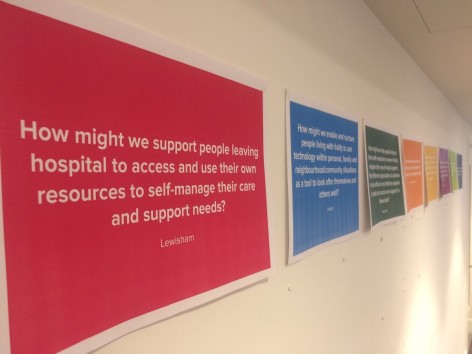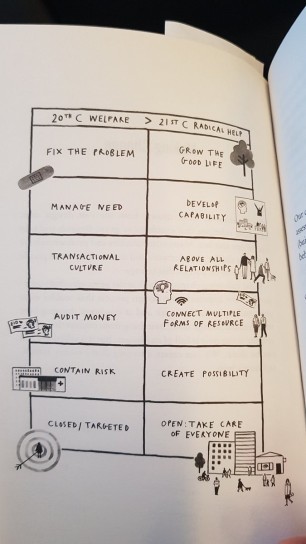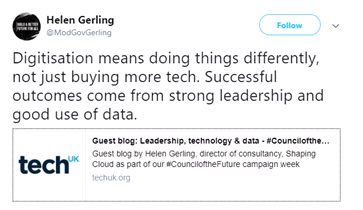It’s funny how things change.
I’m not sure how many of you grew up to either being named in or receiving Christmas family newsletters. The highlights of the year gone by – family members getting married, having children, holiday trips to far flung places or some other momentous occasion. And of course, often embarrassing photos which depict some of the things that happened during the year.
Today of course you don’t need to wait until the end of the year for news about family and friends. Facebook, Twitter, Instagram and the other social media platforms mean that we are receiving updates on those we follow the moment they happen – or in the case of Facebook through their ‘Year in Review’.
At work this year we’ve started, but still have some way to go, on working in the open….so I’m having to revert to a ‘family newsletter’ type blog!
- Working in the open
We have been encouraged this year by places like Hackney, NHS Digital and Essex (to name a few) who are committed to, and demonstrating what it means to work in the open. This of course doesn’t just mean publishing a blog post every so often but it’s about embracing a completely different way of working – one which encourages transparency, collaboration and ongoing feedback.
The emergence of Pipeline (a means of publishing digital projects and encouraging collaboration) and the User Research Library (a means of publishing user research results) are a couple of ways that Local Government is coming together to encourage open ways of working.
Although we are only a small team of four working in the area of care and health we will be looking at ways that we can get involved more in 2019. This year we’ve introduced Slack on a number of our projects to encourage collaboration internally, with partners and with councils. We’ve still got a long way to go but it’s helping us collaborate in new ways.
In the New Year we’re going to be holding our first public (and hopefully live streamed) show and tell as a way of sharing some of the things going on……and to facilitate more interaction with councils and local areas.
- Putting people (not organisations) first
One of the highlights this year has been running our Social Care Digital Innovation Programme (funded by NHS Digital #scdip). The first time we ran it in 2017 we didn’t get it totally right. We’ve learnt and adapted.
Last year 19 local areas were funded to lead change in the area of social care but we started in the wrong place – asking councils to tell us about the digital solutions they wanted to implement. Some projects were successful, others found there was as much (if not more) learning about what didn’t go right as well as that which did. And we’ve shared that so others can have access to the learning too.
This year we launched the Social Care Digital Innovation Programme. We asked councils to start in discovery – emphasising a starting point in understanding people, putting them first and prototyping solutions with them. Running a discovery phase has made a significant difference (we’ve published all the discovery findings in the open here). We had a very interactive announcement of the 9 shortlisted councils at the National Children’s and Adults Conference earlier in the year with thanks to Minister of State for Care, Caroline Dinenage MP which you can watch a snippet of here.
Highlights include:
- South Tyneside: Want to understand more about the challenges people with learning disabilities and/or autism experience during communications with social workers. With the Digital Catapult they have prototyped ‘Natter Notes’ – a wraparound solution for social workers and client level meetings.
- Havering: Want to address the challenges and delays in recruitment of care staff working in social care providers since at present there are often multiple delays whilst undertaking necessary checks. Working with Lodge Group and Havering Council they have prototyped ‘ME Passport’ – a solution which staff can take between employers with information already validated at source.
- Wirral: Working with Autism Together, Wirral Council and other partners to use technology to identify triggers for heightened stress and anxiety in a variety of environmental situations. This would enable staff to develop strategies which help individuals with learning disabilities and autism prepare for and manage their sensory world.
We are now starting to think about how we can learn from places like Hackney and Greater London Authority who have introduced service assessments against the Local Government Digital Standards on these types of projects.
- Design Doing – not Design Thinking
As we’re a small team we’re keen to promote multi-disciplinary teams and ways of working that draws on strengths from different partners and individuals.
Our Design in Social Care Programme was launched in the Autumn. We’re currently working in a collaborative way with service design agency Snook and 10 local areas as part of a cohort programme to help them re-design areas of care and health. This is still at early days (all 10 councils are currently undertaking user research) but there has been enthusiasm across the cohort and we’ve purposefully organised the programme so that it’s not “design thinking” but “design doing”.
It has involved plenty of miles travelling for the team (so far we think we’ve clocked up somewhere in the region of 1,400 miles) but it has been great to collaborate with the 10 local areas. It’s great to see that the teams themselves are multi-disciplinary involving partners such as AgeUK, Healthwatch, local care providers and NHS organisations.

Highlights include:
- Barking and Dagenham and Lambeth are looking at how to give people more control over plans for their care – particularly in the areas of homecare.
- Lewisham are looking at ways to improve patients experience of leaving hospital (similar to the Essex work here).
- Suffolk, Southend and Buckinghamshire are all looking at how to help people feel more comfortable making decisions about their health and wellbeing.
- Birmingham are looking at improving young people’s experience of transitioning from children’s to adult social care.
Some of this of course is going to require a language shift. Much of the design has been focused on ‘fixing services’. One of the highlights for us this year has been reading Hilary Cottam’s book Radical Help where she encourages to move away from ‘fixing problems’ and ‘managing need’ to growing capability and encouraging relationships. This isn’t just a language change…..it’s a change of approach.
As strong as it has been, the Government Digital Service approach has been based on improving transactions but of course social care isn’t and shouldn’t be purely transactional. This led to a very interesting debate in October…..one which we are still getting our heads around!

- Open Standards, Interoperability and Information Sharing
One of the things that was published this year was the Technology Vision from the Secretary of State for Health and Social Care. Technology is one of the three priorities for the Secretary of State and it was positive to see the vision underpinned by four guiding principles:
- Designing services around user needs
- Maintaining public trust in how data is shared
- Establishing open standards
- Designing for inclusion
We are keen for our own work to continue to align to these principles – the first (user need) and third (interoperability and openness) are very pertinent at the moment. There is a healthy balance in the vision between getting the basics right (or what others in MHCLG are using as #fixtheplumbing) and supporting innovation and disruption in a way which brings about new ways of working.
This year we have worked with the Institute of Public Care and Care Provider Alliance in understanding the use of technology and digital across the care sector. On-site practical work is currently underway across 75 providers in North Yorkshire, Central Bedfordshire and Royal Borough of Greenwich. Unsurprisingly this is providing further evidence of the need to help ‘fixtheplumbing’. Earlier this year the Care Quality Commission told us that information sharing challenges are still prevalent across the breadth of social care. The early findings from this discovery concur – particularly in areas around discharge and medication administration. More in 2019 as we hope to expand this work.
The launch of the Local Health and Care Record Exemplars (five regions that include councils) is one programme that seeking to address these challenges around data sharing through the use of open standards and interoperable systems (e.g. APIs that solve problems rather than just share data). It’s important to remember as Helen Gerling in her blog for TechUK says ‘digisation means doing things differently, not just buying more tech’.
There are opportunities here to be more collaborative in how we come together across organisations and suppliers to share data from and with Local Government and social care. We’ve not always got this right – either information isn’t shared or where it is it’s not always being shared in the most efficient and effective way. There is some great work going on in individual localities but this requires collaborative and open working.
We are already working with a number of councils in the five regions and in the LGA we are keen to play our role in making this change happen both for councils but also the broader care sector. There will be more information on this in early 2019.

At some stage in 2019 we expect to see the Social Care Green Paper. We hope that both this and the NHS Long Term Plan will prioritise opportunities to further re-design and improve our care and health system. Technology has an important role to play but we need to remember that it starts with people and designing with them.
Our own work will continue and in many cases expand on the projects outlined above. It’s an exciting time – there’s still lots to do but I think the team are looking forward to a well earned break over the next few days.
Whatever you are up to and wherever you are over Christmas and New Year we hope you have a fantastic time!
